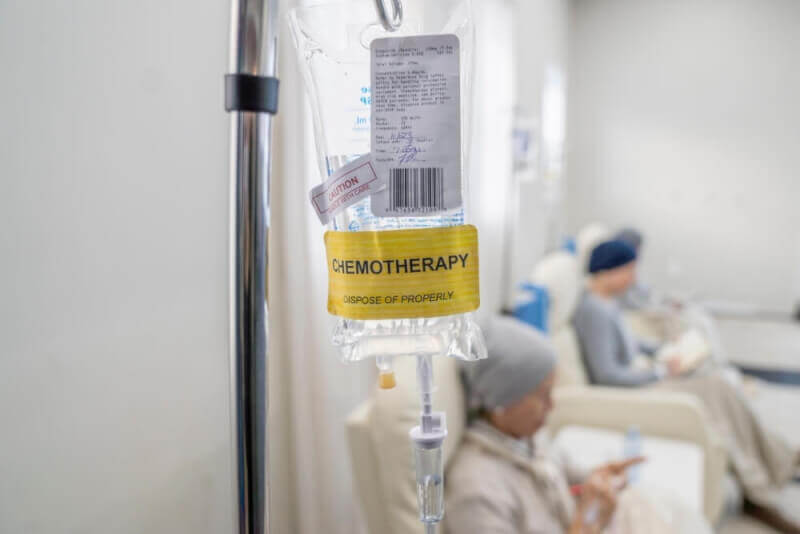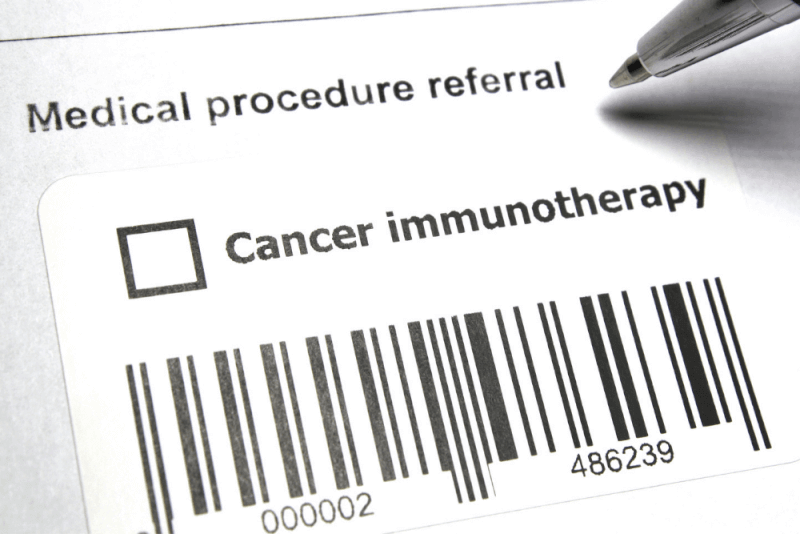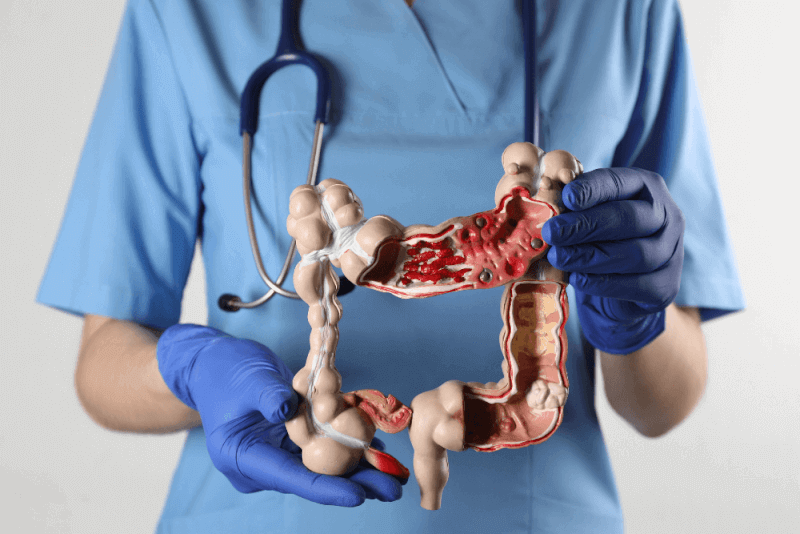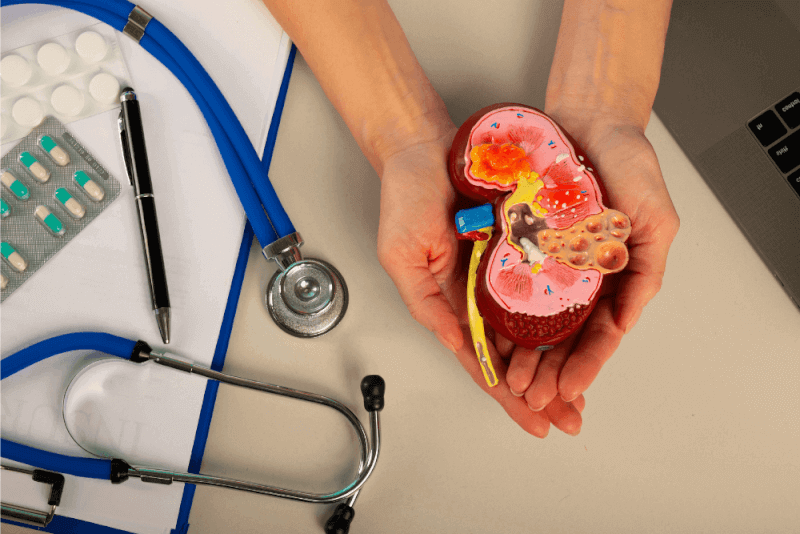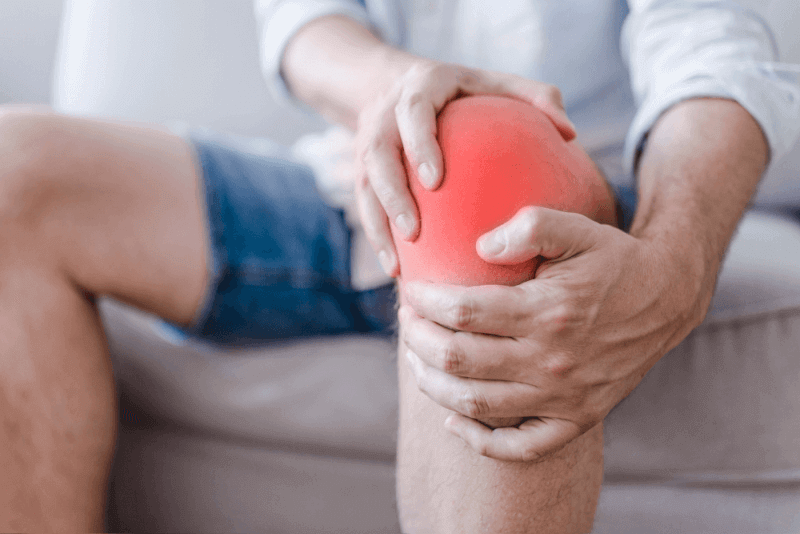What is chemotherapy?
Chemotherapy is a drug treatment that uses powerful chemicals to kill rapidly growing cells. Chemotherapy treatment is usually included in cancer treatment plans. But it is also used to treat different diseases such as amidiosis.
There are many chemotherapy drugs used for different purposes. Chemotherapy drugs can be used alone or in combination with other chemotherapy drugs. Chemotherapy, which provides successful results in many types of cancer, also has some side effects. While some of these side effects are mild and treatable, some complications can be very serious.
Since chemotherapy is a systemic drug, it affects every part of the body. It kills cancer cells by attacking certain parts of the cell cycle. Because cancer cells cycle faster, chemotherapy drugs have a greater effect on cancer cells. This situation also causes side effects such as hair loss and nausea in patients.
Types of chemotherapy
As cancers divide and multiply uncontrollably, chemotherapy is used in different ways, resulting in the diversification of chemotherapy
Neoadjuvant chemotherapy
Neoadjuvant therapy is when patients receive chemotherapy treatment before radiation therapy or surgery. This treatment aims to reduce the size of the tumor and maximize the benefit of the actual treatment method to be applied.
Adjuvant chemotherapy
Chemotherapy administered after surgery or radiation therapy is called adjuvant therapy. Adjuvant chemotherapy aims to kill cancer cells that may have been left behind after the first treatment.
Palliative treatment
It is a treatment especially for cancer patients at the end of life. Rather than curing the disease, this treatment reduces the size of the tumor and reduces the symptoms caused by cancer.
Types of chemotherapy drugs
There are more than a hundred different drugs used in chemotherapy. Drugs are differentiated because they interfere with different stages of the cell cycle. For this reason, when planning chemotherapy treatment, more than one chemotherapy drug is used together and the cancer cell can be intervened in different ways. The main types of chemotherapy include the following.
- Alkylating agents
- Plant alkaloids
- Antimetabolites
- Mitotic inhibitors
- Anti-tumor antibiotics
- Topoisomerase inhibitors
How is chemotherapy administered?
Chemotherapy is a treatment that can be applied in different ways. For this reason, special instructions are given by experts to prepare patients before treatment.
Preparation before chemotherapy
Patients have a certain preparation process before chemotherapy. The steps involved in this preparation process include the following.
- If chemotherapy is to be administered intravenously, doctors may recommend a device such as a catheter. catheters are usually surgically implanted in a large vein in the chest. Chemotherapy drugs are then administered through this device.
- Some tests and procedures are also needed to make sure patients are ready to receive chemotherapy before treatment. Before the session, patients undergo blood tests to check kidney and liver function and heart tests to check heart health. If the tests show that the patient is not ready for chemotherapy, doctors may reschedule the treatment or choose a different chemotherapy drug and dosage.
- Patients are also advised to consult their dentists before the chemotherapy session. As some chemotherapy drugs can reduce the body's ability to fight infections, it is extremely important to have dental check-ups and check for possible dental infections. This also reduces the side effects of chemotherapy.
- Getting advance information about the side effects that chemotherapy may cause and planning for these side effects in advance is another important issue for preparing patients for treatment. For example, if infertility may occur due to chemotherapy, considering storage options for eggs or sperm for future use will make patients feel better.
- Chemotherapy treatment is usually given in outpatient clinics. For this reason, a significant proportion of patients can continue to work and return to their daily activities after treatment. However, it is not possible to know exactly how much the chemotherapy session will affect daily activities. It is therefore necessary to plan resources that can help with children, work or pets.
- Before the first chemotherapy session, patients should ask their doctors and chemotherapy nurses how they will prepare for the session, which will reduce their stress levels and make it possible for them to feel more prepared. Especially being well rested before the first chemotherapy session will make the chemotherapy session easier. In addition, eating something light before the session will be effective in preventing nausea. Going to the first session with a family member or friend can make patients feel more comfortable and will also allow them to get help to go home if they feel sleepy or lethargic after the session.
According to which criteria is the chemotherapy plan determined?
Many different chemotherapy drugs are used to treat cancer. These drugs can be used alone or in combination with other chemotherapy drugs. This feature of chemotherapy makes the planning phase challenging. Among the points that oncologists take into account when planning chemotherapy are the following.
- Type of cancer
- Stage of cancer
- Age of the patient
- General health status of the patient
- Body weight
- Possible side effects of the drug
- Other medical conditions seen in the patient
- Previous cancer treatments
How are chemotherapy drugs given?
In chemotherapy treatment, different drugs are given to patients in different ways.
Chemotherapy infusions
Chemotherapy is usually administered as an intravenous infusion. To do this, a special device is inserted into a vein in the arm or another vein in the chest. The chemotherapy drug is then administered intravenously.
Chemotherapy pills
Some chemotherapy drugs may be in capsule or pill form.
Chemotherapy injections
Chemotherapy drugs also include injectable chemotherapy drugs. There is no difference between chemotherapy injections and other injections.
Chemotherapy creams
Chemotherapy is also used to treat certain skin cancers. These medicines can be in the form of cream or gel.
Chemotherapy drugs used to treat a part of the body
Some chemotherapy drugs can be given directly to a specific area of the body. There are chemotherapy drugs that can be given into the abdomen, chest cavity or central nervous system. Chemotherapy drugs can also be administered into the bladder through the urethra. This method is used to treat a specific area of the body and the blood circulation of patients is managed.
Delivery of chemotherapy directly to the tumor
Chemotherapy drugs can be given directly to the tumor or to the tumor site after surgery. For example, thin disk-shaped plates containing chemotherapy drugs are placed next to the tumor during surgery. These disks break down over time, releasing the chemotherapy drugs. Chemotherapy drugs can also be injected directly into the vein supplying the tumor.
What does chemotherapy do?
Chemotherapy is usually used to kill cancer cells. Among the various conditions in which chemotherapy can be used are the following.
- Chemotherapy is used as a primary or sole treatment option to treat cancer without the need for other treatments.
- After different treatment options, chemotherapy can be used to kill hidden cancer cells in the body.
- Chemotherapy can help prepare patients for other treatments such as surgery or radiation therapy. Chemotherapy can help shrink the tumor and achieve more success than other treatment options.
- Chemotherapy, which kills some of the cancer cells, can also be used to relieve symptoms caused by cancer.
Use of chemotherapy for non-cancer conditions
Some health conditions can be treated with chemotherapy drugs. These diseases include the following.
- Bone marrow diseases affecting bone marrow and blood cells require chemotherapy to prepare the bone marrow before stem cell transplantation.
- In autoimmune patients such as rheumatoid arthritis and lupus, low doses of chemotherapy drugs can be given to control an overactive immune system.
What are the side effects of chemotherapy?
Side effects caused by chemotherapy can be extremely serious. The drugs used in chemotherapy treatment have different side effects. For this reason, some medicines do not cause certain side effects, while others can cause serious side effects. Because of these characteristics of chemotherapy drugs, patients are advised to consult their doctor about side effects before taking the drug. Among the side effects seen in chemotherapy treatment are the following.
- Nausea constipation
- Vomiting
- Agri
- Mouth sores
- Hair loss
- Fire
- Diarrhea
- Loss of appetite bleeding
- Easy bruising
A significant proportion of the side effects of chemotherapy are preventable and treatable. In addition, most of the side effects disappear spontaneously after the end of treatment.
Long-term and late side effects caused by chemotherapy can occur months or years after treatment. Although the late side effects that may be seen depending on the chemotherapy drug used vary, the following are among the most common late side effects.
- Risk of a second cancer
- Damage to lung tissue
- Nerve damage
- Heart problems
- Kidney problems
- Infertility
- Memory and thinking problems (so-called chemogenic brain)
- Early menopause
Benefits of chemotherapy
For decades, chemotherapy has been considered the safest cancer treatment, despite its many side effects. Chemotherapy can make it possible for the cancer to disappear completely. In addition, it reduces the symptoms and improves the quality of life of patients. It also increases the chances of success of surgery or radiation treatments.
Recovery after chemotherapy
It is expected that side effects will continue to occur for some time after the completion of chemotherapy sessions. These effects usually last for 3 to 4 weeks. In some patients, it is possible up to 6 weeks. When the side effects completely disappear depends on the type of chemotherapy received and the side effects seen.
What should chemotherapy patients pay attention to?
There are some points that chemotherapy patients should consider during their treatment process. They should get information about these points from their oncologists and act accordingly. Among the points that patients should pay attention to are the following.
Sun and sea
Patients should consult their physicians about swimming and sunbathing. However, among the points generally recommended to patients are the following.
- It is recommended to avoid swimming and sunbathing on the days of chemotherapy. Because chemotherapy can increase the skin's sensitivity to the sun's UV rays.
- It is expected that blood values will be at a lower level for 10 days after treatment. This makes them more vulnerable to infectious and febrile diseases. Patients may face more serious infections if they get infected while swimming in the sea or pool.
- If the blood values of the patients are normal after the treatment, it is possible to sunbathe or go to the sea after consulting the doctor.
Use of other drugs during chemotherapy
Chemotherapy treatment does not preclude the use of medicines used to treat other health problems. However, the drugs used may interact with chemotherapy drugs. For this reason, it is recommended not to use aspirin and aspirin-containing painkillers unless absolutely necessary. It is recommended to use medicines containing paracetamol as antipyretics and painkillers. In addition, among the points that patients should pay attention to are the following.
- Avoiding unnecessary or excessive vitamin supplements
- Sharing all medicines used with the oncologist
- Notification of oncologists of drugs prescribed by different doctors
- Vaccinations such as hepatitis and influenza with oncologist permission
- Live vaccines should not be administered during chemotherapy treatment or even for a few months afterwards
Oral health
Patients undergoing chemotherapy should also pay attention to their oral health. For this, the following are among the points that patients should especially emphasize.
- Dental care should be done before chemotherapy
- Patients who use prostheses should make sure that their prostheses fit the mouth structure well.
- Patients using dentures should remove their dentures after eating and clean their mouths and dentures.
- It is recommended to clean the teeth with a soft brush after every meal and before going to bed.
- Excessively hot, cold, hard and bitter foods should be avoided.
- It is recommended to gargle with a teaspoon of baking soda added to a glass of water after meals and before going to bed.
Physical activity
It is also important for patients to maintain their physical and social activities during chemotherapy. Although a significant proportion of patients experience weakness and fatigue after chemotherapy, continuing regular physical activities helps to reduce these side effects. In addition, not being cut off from social life will provide psychological relief to patients. However, they are advised not to spend long periods of time in crowded social environments.
Emotions
Chemotherapy changes the way patients look at life and feel. Patients may feel frightened or upset during this process. Talking about their feelings will help patients to relax. It is recommended that patients seek help from clinical psychologists at this stage. In addition, patients will be better able to control this process if they get help from their doctors or nurses in matters related to their sexual life and birth control.
Chemotherapy and nutrition
Nutrition is extremely important for patients receiving chemotherapy treatment. If patients are malnourished and malnourished, the treatment process slows down and can lead to severe consequences for patients. Despite this, malnutrition is extremely common in chemotherapy patients. For this reason, it is very important to diagnose malnutrition in chemotherapy patients at an early stage and to continuously screen patients in this respect. Approximately 30% of cancer patients pay attention to their nutrition during the treatment process and make a diet plan in accordance with their treatment. This leads to chemotherapy patients underutilizing the success of the treatment. Approximately 15% of patients experience involuntary weight loss due to lack of attention to their diet. Paying attention to nutrition is also effective in shortening the duration of hospitalization. It also ensures that their quality of life is maximized.
Although it can be difficult to maintain nutrition during chemotherapy due to side effects caused by the drugs, such as nausea and vomiting, it is necessary to strictly follow a proper program prepared with health professionals. Factors such as the formation of mouth sores due to treatment, swallowing difficulties, dental caries, taste and odor changes are also very effective in causing patients to have difficulty eating. These changes may be temporary in some patients, but they usually persist for the duration of chemotherapy treatment. For this reason, following a properly planned diet both during and after treatment helps patients to maintain their general health and contributes to the successful end of the chemotherapy drugs' fight against cancer.
Nutrition during chemotherapy
The side effects caused by chemotherapy drugs have a serious impact on patients' nutrition. In order to overcome this situation, prevent involuntary weight loss and support treatment, patients should pay attention to the following points.
- The first point that chemotherapy patients should pay attention to is the consumption of fresh vegetables and fruits. Patients are not recommended to consume unwashed raw vegetables and fruit. In addition, fruits and vegetables with damaged skin, direct contact with soil and rotten fruits and vegetables should be consumed. Patients are advised to prefer thick-skinned fruits such as tangerines, oranges and bananas instead of thin-skinned fruits such as peaches, apples and kiwi. Another point that chemotherapy patients should be careful about fruits is to avoid cereals containing dried fruits and frozen fruits. The most suitable fruit consumption method for chemotherapy patients is compote. When consuming vegetables, it is recommended that they are well cooked.
- The most important point that patients should pay attention to when consuming milk and dairy products is to consume pasteurized products. Homemade yogurts or street milk are not recommended for chemotherapy patients with weakened immune systems as they are prone to bacterial contamination. In addition, the consumption of milk and milk products containing probiotics or probiotics should be restricted.
- Chemotherapy patients should not consume moldy and herby cheeses and unripe cheeses. Instead, it is recommended that they consume hard, cooked and packaged cheeses such as cottage or curd cheese.
- For chemotherapy patients, raw eggs are among the high-risk foods. For this reason, sauces using raw eggs such as mayonnaise and cream and half-cooked eggs should not be consumed.
- It is also necessary to avoid foods such as sushi, undercooked meats, shellfish, salami, sausage and pepperoni, which have high values in terms of microorganisms that cause a negative effect on immunity. Consuming well-cooked foods such as meat, fish and poultry is extremely important in terms of preventing microorganism contamination.
- Patients are advised to add mint, thyme, basil and rosemary to their meals in case of dietary difficulties. Because research on oncologic patients has found that these spices are the most suitable spices for patients' palates.
- Foods prepared on the barbecue and outside, such as hamburgers, pose a risk for patients. For this reason, patients are advised to avoid such foods.
- Restrictions should be imposed on the consumption of non-heat-treated delicatessen products, nuts, instant soups, honey and instant biscuits. In addition, unroasted packaged nut products can be consumed.
- Another point that patients should pay attention to is water consumption. Since the bacteria in water carry a high risk for patients, bottled water should be consumed instead of tap water.
- Finally, since hot food and drinks can cause discomfort to patients, it is recommended that the food and drinks consumed should be consumed at room temperature or cold. Patients are advised to avoid excessively spicy, salty or fatty foods.
Nutrition after chemotherapy
After chemotherapy treatment, the immune system will remain inadequate for some time. For this reason, the nutritional recommendations recommended during chemotherapy should be continued after treatment. Especially in treatments with ongoing side effects, appropriate measures should be taken to reduce side effects. Among the things that can be done for this are the following.
- Patients with nausea are advised to eat small portions frequently.
- Fluid intake should not be consumed during meals, but between meals and little by little. For this reason, it is recommended to drink through a straw.
- Metal forks and spoons may cause the food to be less tasty due to the change in taste in the mouth. Patients with this condition are recommended to use plastic forks and spoons
- Sucking on a piece of ice and chewing gum are very effective in increasing salivation. Increased salivation can moisturize the inside of the mouth and relieve the pain felt by patients.
- Patients can eat more food by cleaning the mouth with mouthwash after meals.
- For patients with chewing or swallowing problems, further cooking and pureeing of food is recommended
Things to consider during and after treatment
Due to the low immune system of patients, the following are among the points to be considered during and after treatment in general.
- Wooden tools and utensils used in the kitchen should not be used in the preparation of the patient's meals. Because they cannot be cleaned properly in terms of microorganisms.
- All meals should be prepared from fresh food. In the case of frozen products, they must be consumed within 24 hours.
- Meals made for patients should be consumed immediately. Leftovers should not be reheated and given to the patient.
- Spices should not be added after cooking. If spices are to be added, they should be added during cooking.
- Raw and cooked foods should be stored in different areas
- Attention should be paid to oral hygiene.
- Smoking and alcohol should be avoided
Home process after chemotherapy
Planning daily life is extremely important to manage chemotherapy more effectively and to increase the comfort of patients. After chemotherapy sessions, patients can have a more comfortable process if they pay attention to the following points during the period they spend at home.
- First, patients need to find someone to help them get to and from treatment. Because after the sessions, patients often feel very tired and unable to drive. In addition, having a trusted and loved one with the patient during chemotherapy sessions will make them feel more comfortable psychologically.
- For working chemotherapy patients, the employee is required to discuss chemotherapy with the employer. Because while some patients can return to work after chemotherapy sessions, others need to rest days or even weeks after the session.
- For chemotherapy patients, it is generally recommended to just rest for a few hours after the session.
- Side effects of chemotherapy, such as nausea, make it difficult for people to cook. This can lead to malnutrition. It is therefore extremely important that patients arrange for someone to prepare their meals. They are also advised to seek help from relatives in matters such as childcare and house cleaning.
- For 48 hours after chemotherapy, a small amount of chemotherapy drug is removed from the body through vomit, urine and other body secretions. It is extremely important to keep these chemicals away from both patients and other people in the household. It is necessary to talk to the doctor about how to manage waste and to act accordingly.
- It is very common for chemotherapy patients to develop mouth sores. For this reason, patients are advised to use alcohol-free mouthwash and brush their teeth with a soft toothbrush. In addition, patients should consult with their dentists about how to perform oral hygiene during chemotherapy.
- Adequate fluid intake helps to alleviate some of the side effects caused by chemotherapy. For these reasons, it is recommended to keep low-calorie foods such as fruits and vegetables and low-calorie drinks within easy reach.
- Patients may also need help caring for pets, as chemotherapy can weaken the immune system. Help should be sought in caring for cat litter, dog feces, bird cages, etc., which may pose a danger in terms of microorganisms.
- It is important to plan for safe sex during chemotherapy. Because chemotherapy drugs damage sperm and cause birth defects. For this reason, it is recommended not to plan pregnancy during chemotherapy. Condoms should be used for every sexual intercourse in case chemotherapy drugs remain in semen or vaginal fluid.
What to do to prevent infection
Chemotherapy patients are particularly vulnerable to infections. For this reason, there are very important points they should pay attention to in order to protect themselves from infection at home. These points include the following.
Hand washing
Frequent hand washing will significantly reduce the risk of infection. Hands should be washed as soon as possible, especially if the following situations occur.
- After coughing or sneezing
- When hands get dirty
- After being in a public place
- Before you start preparing food
- After touching contaminated areas
- Before and after eating
Not only patients, but also people around the patient who care for them or are in the same household should wash their hands frequently.
Nutrition recommendations
Nutrition is one of their causes of infection. Among the points to be considered to prevent this situation are the following.
- Water should be boiled and consumed.
- Water that has been left for a long time should not be used.
- Instead of carboy water, ready-to-sell water in small bottles should be preferred.
- In order to maintain skin integrity, it is important to consume foods containing vitamins B and C and protein.
- Vegetables and fruits should be washed thoroughly and kept in vinegar water after washing.
- Vegetables and fruits that can be peeled should be peeled and consumed.
- When white blood cells are low, raw vegetables and fruits should not be consumed.
- Low-cooked meat, chicken, eggs and fish should be consumed.
- Hands should be washed after touching raw meat and meat products.
- Patients with low hemograms are advised to consume iron-rich foods such as liver and red meat, as well as green and fibrous vegetables.
- Eating out is recommended.
Personal care tips
- The water that patients shower with should be lukewarm.
- Care should be taken to ensure that the pH value of the soaps and shampoos used is balanced.
- It is recommended not to use hard scrubs and washcloths to protect the skin from trauma.
- If the skin is dry or cracked, it is recommended to use appropriate moisturizers
- Clean gently and thoroughly after going to the toilet.
- If there is pain or bleeding in the anus area after defecation, the doctor should be informed.
- Constipation should be avoided to protect the anus from trauma.
- Suppositories, enemas and ovules should not be used when the white blood cell count is low.
- Sexual intercourse should be avoided during periods of low blood counts.
- Personal belongings should not be shared with anyone.
- Soft toothbrushes should be used to protect the gums.
- Manicure pedicure should be done
- Razors should not be used to prevent cuts.
- Pimples or wounds should not be interfered with
- It is recommended to keep the fever under control. In case of fever, patients should drink plenty of fluids.
Environmental measures
Patients should avoid crowded places and people with infections as much as possible. It is strongly recommended that they wear this mask if they need to enter such environments. In addition, the environmental conditions that patients should pay attention to include the following.
- They should avoid stuffy and dusty environments.
- The house needs to be ventilated frequently.
- No flowers, bird cages, houseplants, cats, dogs or aquariums in the house
- Gloves should be worn in case of contact with animal feces or waste.
- Garden and field work should be avoided as much as possible. If working, gloves must be worn.
Medicines and vaccines
Patients should always inform their doctors about the drugs and vaccines they will use during chemotherapy. In addition, among the points that patients should pay attention to are the following
- Patients with high fever should consult a doctor before using antipyretics. In particular, antipyretics such as aspirin, acetaminophen and ibuprofen should not be used.
- Herbal products recommended as alternative treatment should not be used in any way. Because these plants can reduce the effect of chemotherapy and can damage the liver and kidneys. For this reason, an oncologist should be consulted before using a herbal product.
Chemotherapy treatments
The duration of chemotherapy treatment varies depending on the type of chemotherapy administered. For this reason, some sessions are limited to a few minutes, while others may take several hours or days. Chemotherapy treatment lasting several days is called continuous infusion therapy. These chemotherapy sessions may take place entirely in the hospital or may start in the hospital and continue at home.
There is no specific stage of cancer that is suitable for chemotherapy. Instead, there are a variety of chemotherapy drugs that can be administered at any stage. For this reason, medication and dosage adjustments must be made at each stage of the disease.
How often is chemotherapy given?
The frequency of chemotherapy varies according to the drugs used, the characteristics of the cancer and the response after treatment. For this reason, chemotherapy programs can be continuous or can be given in separate periods such as chemotherapy and rest periods due to the length of the recovery period.
How do you know if chemotherapy is working?
Some tests are needed to determine whether the chemotherapy treatment is successful or not. These examinations provide information about the tumor as well as the general health status of the patient. In order for the treatment to be successful, positive results must be obtained from these examinations. If the results are positive, it is possible to stop some of the chemotherapy drugs and the session temperatures can be reduced.
Differences between chemotherapy and radiotherapy
The main difference between chemotherapy and radiotherapy is that radiotherapy is a local treatment while chemotherapy is a systemic treatment. For this reason, radiotherapy is a treatment method that targets only the tumor. In chemotherapy treatment, all cancer cells in the body are targeted.


